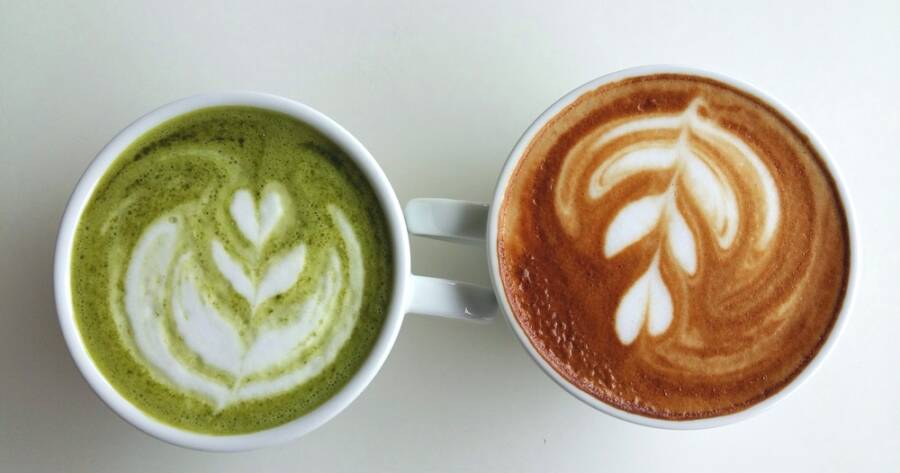When it comes to morning rituals and afternoon pick-me-ups, coffee and matcha are two of the most popular beverages around. Both deliver a dose of caffeine and offer health benefits, but they’re far from identical. Whether you’re a lifelong coffee lover or a curious matcha newbie, understanding the differences between the two can help you decide which drink best suits your lifestyle, energy needs, and wellness goals.
Caffeine Content and Energy Boost
Coffee is known for its strong caffeine kick. An average 8-ounce cup contains about 95 mg of caffeine, which can vary depending on the brewing method. The effects are fast and noticeable, many people feel more alert within minutes of taking the first sip. However, that quick boost can sometimes lead to jitters, a racing heart, or an energy crash later in the day.
Matcha, on the other hand, contains less caffeine—around 35 mg per 8-ounce serving—but it’s paired with L-theanine, an amino acid that promotes calmness and focus. This combination creates a smoother, more sustained energy boost without the sharp spikes and crashes that coffee can bring.
Verdict: If you want a powerful wake-up call, coffee wins. If you prefer calm, focused energy, matcha might be your better bet.
Health Benefits
Coffee has been extensively studied for its potential health benefits. It’s rich in antioxidants and may lower the risk of several conditions, including Parkinson’s disease, type 2 diabetes, and certain cancers. It can also improve cognitive function and mood when consumed in moderation.
Matcha is a type of powdered green tea and contains a higher concentration of catechins, particularly EGCG (epigallocatechin gallate), which is known for its anti-inflammatory and metabolism-boosting properties. Matcha also supports heart health, detoxification, and may help reduce stress thanks to the calming effects of L-theanine.
Verdict: Both drinks offer strong health perks, but matcha may edge out coffee when it comes to antioxidant content and stress reduction.
Digestive Impact
Coffee is acidic and can sometimes irritate the stomach lining, especially when consumed on an empty stomach. It may also increase symptoms of acid reflux or gastrointestinal discomfort in some individuals.
Matcha is less acidic and generally gentler on the digestive system. Because it’s made by consuming the entire ground tea leaf, it also provides fiber, which supports gut health.
Verdict: Matcha is easier on the stomach, especially for people sensitive to acidity.
Taste and Versatility
Coffee’s bold, bitter flavor is loved by many, especially when customized with milk, sweeteners, or flavored syrups. It’s highly versatile—drink it hot, iced, black, or as a latte.
Matcha has a grassy, slightly sweet, and earthy flavor that can take some getting used to. It pairs well with milk (or plant-based alternatives) in lattes and can also be used in smoothies, baked goods, or even savory dishes.
Verdict: Coffee offers more traditional taste variety, but matcha wins points for culinary creativity.
Sustainability and Preparation
Coffee beans require more processing and water to produce, and sustainability depends heavily on farming practices. Meanwhile, matcha is made from shade-grown tea leaves and involves minimal processing, making it a more environmentally friendly option—especially if sourced from responsible producers.
In terms of preparation, coffee can be as easy as pressing a button or as involved as using a French press or pour-over. Matcha requires whisking powder into hot water, which some find calming, while others see it as time-consuming.
Verdict: Matcha is more sustainable, but coffee is often quicker to prepare.
Which One Is Right for You?
There’s no one-size-fits-all answer in the coffee vs. matcha debate, it all comes down to your preferences, health needs, and daily routine. If you thrive on strong, quick energy and love the bold taste, coffee may be your drink of choice. But if you’re looking for a calmer focus, a gentler caffeine experience, and additional antioxidants, matcha might be worth a try.
Better yet, why not enjoy both? You don’t have to choose one over the other—just let your mood, schedule, or taste buds decide.

